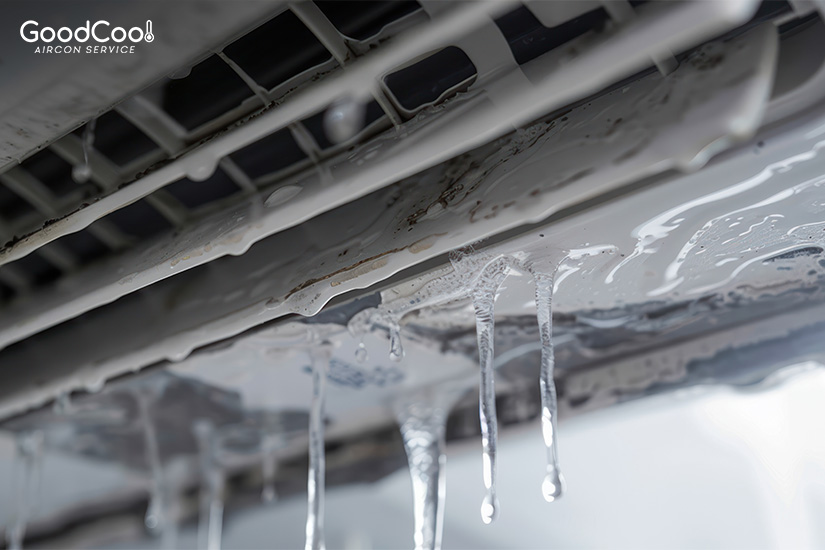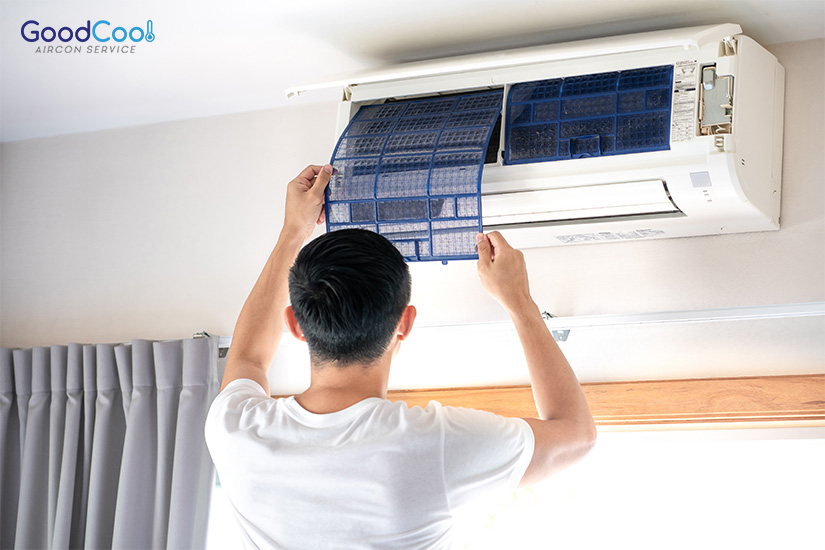What Is Aircon Jelly and Why Is It Forming in Your Unit?

Key Takeaways
- Aircon jelly is a sticky, jelly-like residue that forms due to stagnant moisture, dust, and microbial growth inside your unit.
- It can lead to aircon drainage issues, water leaks, unpleasant odours, and reduced cooling efficiency.
- Poor indoor air quality caused by aircon jelly may also trigger allergies or respiratory issues.
- Prevent buildup by cleaning filters regularly, ensuring proper drainage, and scheduling routine professional servicing.
Strange Slime in Your Aircon? It Could Be More Serious Than You Think

Have you noticed a jelly-like substance forming in your aircon unit? This odd buildup—also known as aircon jelly—isn’t just unpleasant to look at. It can also lead to water leaks, musty odours, and reduced cooling performance if not addressed early.
In this article, we explore what causes this slimy residue in your aircon, the risks it poses, and how you can keep it from coming back.
What Causes Aircon Jelly to Form?
1. Stagnant Moisture and Dust
The cooling process naturally produces moisture within your aircon unit. If it isn’t drained properly, this moisture can become stagnant and accumulate dust, skin cells, and other organic debris. Over time, the mixture breaks down and forms a sticky, jelly-like residue that coats the unit’s internal components.
2. Bacterial and Algal Growth
Microbial growth is another major cause. The dark, warm, and damp environment inside the aircon—especially around the drip tray and drainage system—can encourage bacteria, mould, and algae to flourish. These organisms create a biofilm, which often appears as slimy residue. This is particularly common in Singapore’s humid climate, where moisture levels are consistently high.
Is Aircon Jelly Harmful?
Yes, ignoring this growth can lead to several problems that affect both your unit and your living space.
Clogged Drainage Pipes and Leaks:
The jelly can block the drainage pipe, leading to water backing up and eventually causing aircon leaking. This not only creates a mess but can also damage walls, floors, and furniture.
Reduced Cooling Efficiency:
Blockages within the system reduce airflow and make your aircon work harder, which increases energy consumption and shortens the unit’s lifespan.
Poor Indoor Air Quality:
The bacteria or algae responsible for aircon jelly can release musty or foul odours. They may also trigger allergies or respiratory issues, particularly in sensitive individuals such as children or the elderly.
How to Prevent Jelly Buildup

Regular upkeep is your best defence. Here are some proven aircon maintenance tips to keep your unit clean, safe, and running smoothly.
1. Clean Filters and Drip Trays Regularly
Dust accumulation contributes to jelly formation, so it’s essential to clean your air filters every 2–4 weeks, depending on usage. Make sure to wipe down the drip tray as well to remove moisture and any residue.
2. Ensure Proper Drainage
Experiencing aircon drainage problems? A blocked or kinked drainage pipe could be the culprit. Check that water is flowing smoothly from your unit—any signs of slow or stagnant drainage may indicate the early formation of the residue. Addressing it early can help prevent leaks and avoid more serious damage down the line.
3. Schedule Regular Professional Servicing
Routine servicing by a professional technician ensures a deeper clean than DIY methods can provide. A full aircon chemical overhaul is especially effective for removing biofilm, eliminating bacteria and algae, and restoring optimal function. It’s advisable to schedule a full service at least once or twice a year, particularly if your aircon runs daily.
Conclusion: Don’t Ignore the Jelly
Aircon jelly might seem harmless at first glance, but it’s often a sign that your air conditioner needs attention. From aircon drainage problems and leaks to reduced cooling and potential health concerns, this sticky residue can quickly become a bigger issue if left untreated.
As a leading aircon contractor in Singapore, Good Cool offers thorough inspections and deep cleaning services—including aircon chemical overhauls—to help you stay cool, comfortable, and worry-free. Our experienced technicians will help identify and resolve issues before they escalate, giving your system a fresh start and a longer lifespan.
Reach out to us today for aircon solutions you can trust.
